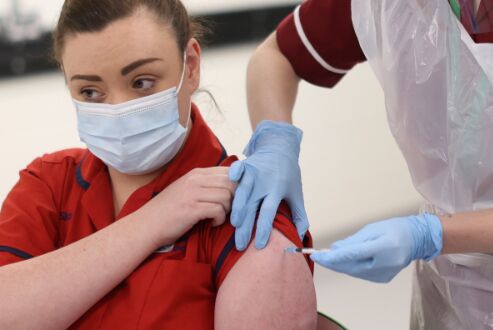Fly in the ointment?

News of a new mutated variation of COVID-19 spreading in the UK has expectantly set-off a wave of global panic. While details are sparse, the idea of an already little known virus further mutating at this stage has already elicited much knee-jerk panic. The situation looks all the more menacing for the UK Government's own admission of an "out of control" virus strain that is forcing parts of the country into full-blown lockdown, following weeks of asserting that socialising rules would be relaxed by Christmas. UK Health Secretary Matt Hancock has claimed that emerging strands of evidence show that the new mutation could be allowing the particular strain to spread much quicker in comparison to previous iterations, with some putting an approximate figure of it being 70 per cent more transmissible. While the new variant has apparently already been detected in Australia and Europe, many nations across the world are nevertheless placing a temporary travel ban to and from the UK. Now, PM Johnson has called an emergency meeting to discuss the international travel ban, particularly in regard to the steady flow of freight cargo to and from the UK. This comes after neighbouring France moved to block the flow of goods and people across the English Channel.
All this, of course, begs the question as to just how big of a deal is this mutation? The answer, predictably, is not straightforward. Mutations are par the course when dealing with viruses. Most mutations are too random to be of any use to the virus in its struggle to stay alive and reproduce. Indeed, since its initial spread, the Coronavirus has already undergone multiple mutations with many escaping notice because they did not meaningfully make the vaccine more infectious or dangerous. What may be different about the new UK variant is that it takes a combination of several mutations that have been observed worldwide and puts it in a package that is apparently causing the virus to noticeably spread more readily. At this stage, the exact functions of the mutations observed is not known though the scientific community has asserted that there is no significant proof that the mutations have made the virus any deadlier than it was before. Another prominent cause for concern that has been brought up is the effects these variations may have on the global vaccination effort which is already kicking into gear at this moment. For now, there is nothing of consequence. Most experts note that vaccines generally stimulate a broad antibody response to the entire spike protein, meaning that mutations should, in theory, not matter. Naturally, with the delicate and monumental nature of the task of inoculating the world, such matter cannot be left to mere chance. Therefore, major vaccine makers and researchers are already following up with the due diligence to be certain. It is, however, worth mentioning that the scientific community has always expected that there would be a need to update the vaccines as time passes, perhaps multiple times. Much as we update our seasonal flu vaccines every year to stay ahead of the many variations the virus goes through, it is entirely possible that COVID-19 too could have similar circumstances. This would particularly be the case if the disease becomes endemic after largely being brought under control worldwide. What is clear is that this will not be the last time news of mutations will be a cause for panic. There are indications that viral lineages outside of the UK variant may also possess this new mutation or series of mutations that allow it to spread faster. If indeed, these emerging mutations pose a significant threat, closing the border will not delay the spread significantly. What is required is a concentrated global effort to track these mutations, share information widely, collate and then come up with a timely combined response. As we near the so-called 'light at the end of the tunnel' with many countries including India about to kick off their mass vaccination campaigns, we cannot allow complacency to pull us back into the darkness.



